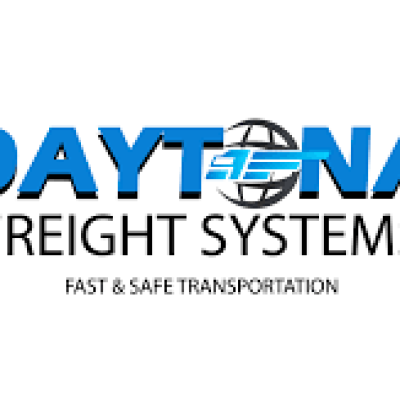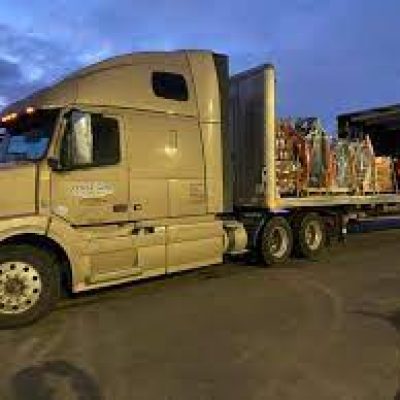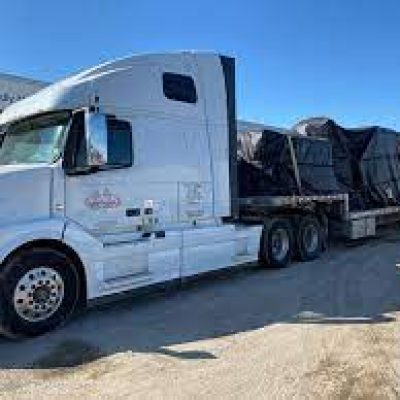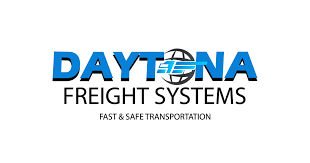Who We Are
Daytona Freight Systems is a family-owned, asset-based logistics company providing a range of integrated supply chain solutions throughout North America. Since our inception in 2013, we have been committed to providing customers with professional, on-time delivery, and pride ourselves in our ability to consistently exceed client expectations.
Our freight management specialists optimize and manage the transporting, tracking, and warehousing of your freight. Whether Canadian or International freight, we have the best Supply Chain Solutions.
OUR MISSION
Efficient, Reliable And Trouble Free Frieght Management
We provide innovative solutions dedicated to transportation, logistics and warehousing in North America & Canada. Our mission is to provide you with the very best quality transportation services available. With a huge fleet of trucks, we have the capacity to meet your needs.
Our Mantra –
Service Excellence
We’ve always been a transportation provider who has listened closely to client feedback and concerns and have developed programs customized to our customers’ exact requirements. We will continue to take an entrepreneurial approach to problem solving. We will create new opportunities by empowering our managers to develop solutions that achieve “Simplified Shipping” and “Service Excellence”.
Today, we remain true to our founders’ early dedication to service. Their hard work and determination was the foundation for our success and has contributed to the success of thousands of customers.
Daytona Freight Systems is Certified ISO 9001:2015 and CAMSC Certified.
Whether you’re just starting or expanding a landscape, construction, or other business where you take your tools and materials with you—at some point you have to ask yourself the question:
What’s the best way to transport my tools, materials, and equipment to and from the job site?
Here’s one of your options!
We provide truckload services that allow you to utilize our equipment at full capacity and tailor the logistics process to satisfy your unique needs.
Our dynamic route optimization systems, on-site management and maximize utilization to help our customers save money.
Whether you’re just starting or expanding a landscape, construction, or other business where you take your tools and materials with you—at some point you have to ask yourself the question:
What’s the best way to transport my tools, materials, and equipment to and from the job site?
Here’s one of your options!
Flatbed trailers are the second most common type of trailers. These workhorses of the transportation industry are open, allowing varying sides of cargo to be loaded from either side or the rear. Straps, chains, and other bindings secure the cargo from movement better than a dry van.
Quick and easy loading: used for transporting heavy loads such as construction equipment or abnormal sized loads that cannot be contained in a closed trailer.
Whether you’re looking to transport commodities like clothing, consumer goods or electronics and machinery where your goods need to be kept water proof — at some point you have to ask yourself the question:
What’s the best way to transport my dry goods, materials, and equipment to and from the job site?
Here’s the answer!
Dry van trailers look like enclosed boxes, protecting cargo from weather and are made to move “dry” cargo. These trailers are the safest equipment for freight.
Our trailers are fitted with the latest in space saving technology with lightweight materials and ultra-thin insulation. Our fleet of trailers has the maximum space to weight ratios available.
Will my estimate be based on the weight of my shipment?
If you are receiving a non-binding estimate, the charges that your mover assesses on your
shipment must be based on the actual weight of the shipment. Your mover may not lawfully
assess transportation charges on shipments with non-binding estimates on cubic feet, volume,
time (hourly) or on any basis other than weight. Also, the federal regulations require that
shipment weights must be determined on a state certified scale with a copy of the weigh
master’s tickets provided to you in support of the final invoice.
When is the best time to move?
The busiest times for moving companies are typically during the summer months, May-September.
If you are planning a move during that time you should make arrangements early.
Friday and Saturdays are big moving days so if you have flexibility in your schedule it can
be easier to get a date during the week rather than a weekend.






